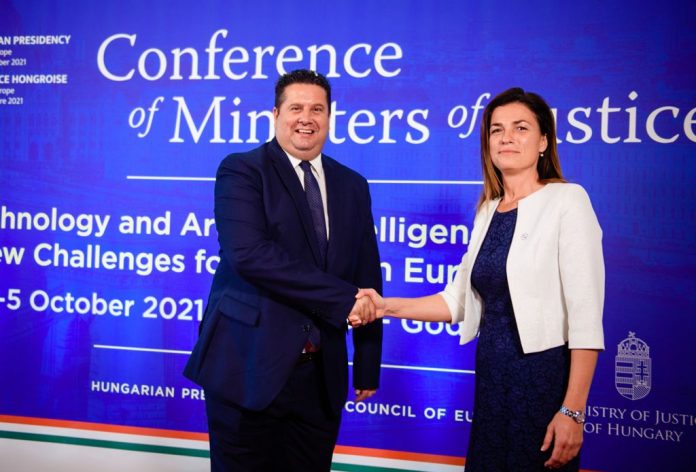During a conference for the Council of Justice Ministers within the Council of Europe held in Hungary, Minister for Justice and Governance Edward Zammit Lewis shared Malta’s achievements and challenges regarding the digitisation of justice and the application of Artificial Intelligence for Judicial Procedures. The conference was organised as a follow-up to the Ministerial Conference on Justice organised in October 2019 in Strasbourg.
During this conference, the ministers discussed challenges and achievements related to the digitisation of justice and the application of artificial intelligence for judicial purposes.
During his intervention, Minister Zammit Lewis emphasised the importance of justice and good governance as one of the core principles of any functioning democracy. Digital tools should not only strengthen this core principle, but should further aid efficiency, accessibility, and the protection of the vulnerable throughout all judicial processes.
The minister said that Malta is not new to the digitisation sector and outlined what has been done in this regard. He did not simply stress the importance of this exchange among the 47 signatory countries of the European Convention on Human Rights but also the importance of the basic rules and technologies that are to be identified by these countries that shall be common and applicable to all.
Minister Zammit Lewis had the opportunity to address another part of the conference, focusing on artificial intelligence and its applicability in judicial processes. The minister remarked that Malta ensured that this new sector is regulated in the justice sector and is in line with the guidelines drafted by the European Council.
He said that such subject should be tackled and implemented with caution as to ensure that no human rights are breached. Undoubtedly, the use of artificial intelligence aids the judicial processes to provide a more efficient and effective system for all citizens.
Having said this, more work is needed in this sector and the applicability of artificial intelligence should never be a replacement of the judiciary as if seen so we would only be applying the law as needed and unproportionate.
Minister Zammit Lewis concluded that signatory countries should aspire to have ‘Courts of Justice’, not ‘Courts of Law’.
Photo (MFJG)










